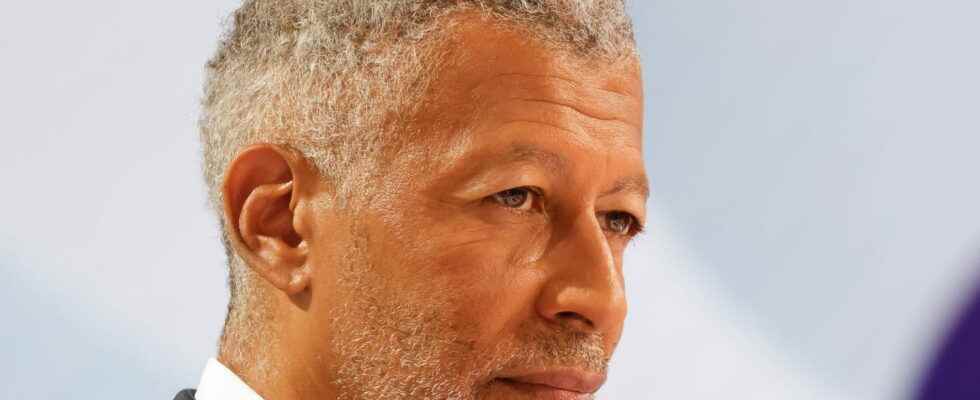Rachid M’Barki was fired from BFM TV, following an internal investigation into the dissemination of content related to disinformation. He defends himself from any journalistic misconduct.
Rachid M’Barki and BFM TV, it’s over. The channel announced to its employees the dismissal of the journalist, presenter of the Journal de la nuit (midnight – 4:30 a.m.), this Thursday, February 23, 2023, a little over a month after being alerted to the dissemination of content linked to a campaign of disinformation, carried out by a company based in Israel. Marc-Olivier Fogiel, director of BFM TV, explains that an internal audit made it possible “to identify several sequences, between 2021 and 2022, which were broadcast without respecting the validation processes and the editorial line.” As a result of which the 50-year-old was fired, after 18 years on the air on the “15”. A complaint against X for passive corruption and breach of trust was also filed on February 22 by the channel. Silent since the start of the affair, Rachid M’Barki had simply told Politico (read below) that the information disseminated “was all real and verified”. The one who also presented “Bring in the accused” (from which he was also ousted) is he an actor or a victim?
What is accused of Rachid M’Barki?
Suspended since January 11 and then fired on February 23, BFMTV journalist Rachid M’Barki was the subject of an internal investigation because of the broadcast, on several occasions, of briefs and biased images on the antenna, found Politico at the beginning of February. These subjects were provided “turnkey on behalf of foreign clients” by “Team Jorge”, a company based in Israel, the subject of a long investigation by a consortium of international journalists, some of whom World and of French Radio. Subjects were sent for broadcast for a fee depending on the survey. The sequences referred to in the Rachid M’Barki affair relate to Morocco and the decried claim of Western Sahara, to the Russian oligarchs deprived of a yacht in Monaco or even in Qatar and Cameroon. Countries and individuals who could have used the services of Team Jorge.
Near Politicothe man admitted to having “used information that [lui] came from informants” and who “did not necessarily follow the usual editorial course”. the hierarchy and the approval of the chief editor, Rachid M’Barki “managed to request (some) images at the last minute […] once the editor-in-chief was taken on another installment and had validated his entire newspaper”, according to the explanations of Marc-Olivier Fogiel, guest on France Inter Wednesday, February 15.
Was BFMTV aware of the disinformation campaign?
The management of the news channel immediately cleared the case. “There is no doubt that BFM is a victim in this story, when one of ours bypasses the hierarchical chain, that poses a problem”, launched the boss of the media who believes that there “is no would have no internal complicity”. And to Hervé Beroud, deputy general manager of Altice media, to bid with Politico “We cannot tolerate any suspicion about the work of our entire editorial staff and our 300 journalists”.
Rachid M’Barki concedes an “error in judgment”
For his part, Rachid M’Barki admits having broadcast the images voluntarily without the approval of the management but denies being part of the disinformation operation. The journalist, although having agreed to broadcast briefs on request, claims to have verified the reliability of the sources. According to him, the information “was all real and verified, I do my job. […] I’m not ruling anything out, maybe I got tricked, I didn’t feel like I was or I was part of some operation of whatever or else I wouldn’t have done it .” In view of the revelations about the disinformation campaign, the presenter conceded a “journalistic error of judgment” in front of his management. For its part, the news channel regretted an “editorial free will […] problematic enough to [lancer] an internal audit”.
Who provided the biased information to Rachid M’Barki?
It was to “do a favor for a friend” that Rachid M’Barki disseminated information under the nose and beard of the management of BFMTV. The journalist did not hesitate to give the identity of this relative: Jean-Pierre Duthion. Known in the media world, the man lived in Syria between 2007 and 2014 and served as a fixer for reporters. Today, Jean-Pierre Duthion presents himself as a “lobbyist” and assumes being at the origin of the sending of the disputed information on BFMTV, a mission entrusted by a sponsor of whom he says he knows nothing but who could well be Team George. “I receive assignments without knowing the end customer. It’s very compartmentalized. I don’t ask myself questions. I do what I’m told to do. The less I know, the better off I am”, a- he told reporters at French Radio.
Rachid M’Barki would not be the only one to have been approached by Jean-Pierre Duthion. Another journalist from BFMTV informed the consortium that from 2020, and again in 2023 after the suspension of the flagship presenter, the lobbyist contacted him specifying that he was “assigned to pay journalists to pass on information”. Something that Jean-Pierre Duthion denies: “I have never and will never pay a journalist. No evidence, no element allows us to affirm the contrary.” Would Rachid M’Barki have been paid in return for the contested broadcasts? The journalist did not comment on this point.
